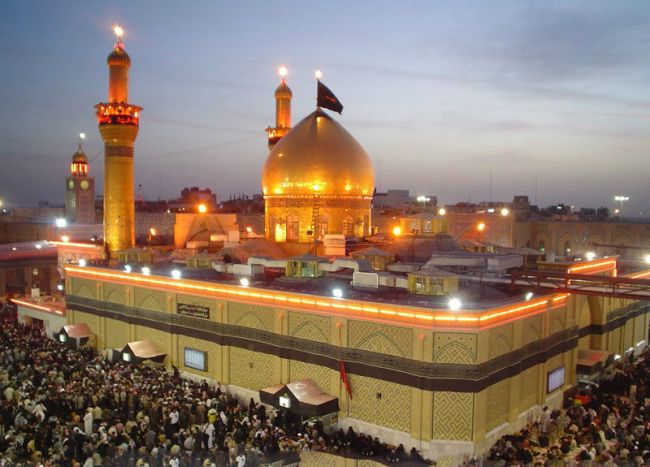Disclaimer*: The articles shared under 'Your Voice' section are sent to us by contributors and we neither confirm nor deny the authenticity of any facts stated below. Parhlo will not be liable for any false, inaccurate, inappropriate or incomplete information presented on the website. Read our disclaimer.
Islam Zinda hota hai, har Karbala ke baad
(Islam comes alive after every Karbala)
“I’ve left my bad habits. I offer namaz 5 times. I’ve even started wearing a hijab/keeping a beard. But I’m still a failure. I’m getting bad grades. Nothing is going right. Kia faida hua ye sub karne ka? What’s the point?”
We often hear such statements from friends and family. Deep down, we seem to believe that “once I start practicing Islam, Allah will automatically bring me success.” When that doesn’t happen, we become depressed and begin to doubt the Promise of Allah. But Allah says that His promise is Al-Haq. Where, then, does the problem lie?
[adinserter block=”3″]
The problem lies with our definition of “success”. What is success? To answer that, let’s look at an example.
We have a man who is such a practicing Muslim that he is called “The one who fasts frequently” and “the one who offers Salat frequently”. This man is the leader of the youth in Jannat. He is Imam Hussain, the grandson of Muhammad, peace be upon him. And he is in the land of Karbala.

Source: Marefat Magazine – WordPress.com
He is here solely for the sake of Allah. He is here with his family, and the heartless enemies have cut off their access to water. They are hungry, they are thirsty, amd they face death. His own adolescent son has been murdered in his hands. He knows what is going to happen next. If anyone in the world has the right to say, “ya Allah, I’m doing so much for you, and this is how you are treating me?” it is this man. But does he ask that question? No.
He died in a state of Sajdah, humbling himself before Allah

Source: Wikipedia
According to every other definition in the world, Imam Hussain is a failure. But to Allah, and to millions of Muslim till eternity, he is a hero. Why? Because our definition of “success” is not fame, or grades, or power, or money, or career, or even life; our definition of success is seeking the pleasure of Allah. If Allah’s pleasure is in living, we live for Him. If it’s in sacrifice, we embrace death.
This is what it means for Islam to “come alive” after every Karbala. It is these values of Islam, these unique definitions of success and failure that are given life through Karbala. It is the belief that the sanctity of Islam comes first, and everything else comes second. The belief that what is right is right even if the whole world believes otherwise. Finally, it’s the belief that no matter what happens, I will remain content with the will of Allah.
Sadly, we live in times where Islam is the least of our priorities. Let’s be honest: what’s the difference between our definition of success and that of a non-muslim’s? How highly do we value this Deen, for the preservation of which Imam Hussain laid down his life and that of his family? Do we not do things that we know are Haram, only because “everyone” is doing them and we don’t want to miss out on the fun? Be the odd one out? Be a “fundamentalist”? That’s so ironic, because it’s the fundamentals of Islam that Karbala brings to life.
[adinserter block=”3″]
As Youm e Ashura ends, let us take a moment to rethink our ideals. How am I living my life? What is my ultimate success? How does the legacy of Imam Hussain speak to me as a muslim? Once we honestly ask ourselves these questions, we are on the way to standing up for truth. For, as Syed Hossein Nasr wrote inIslam and The Plight of Modern Man:
“..the real reform of the world begins with the reform of oneself. He who conquers himself conquers the world, and he in whom a renewal of the principles of Islam in their full amplitude has taken place has already taken the most fundamental step toward the “renaissance” of Islam itself, for only he who has become resurrected in the Truth can resurrect and revive the world about him, whatever the extent of that “world” might be according to the Will of Heaven.”







